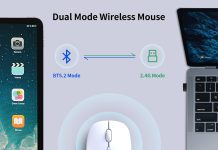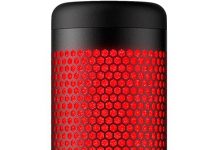Are you on the hunt for a piano keyboard that genuinely captures the essence and feel of a traditional piano? Look no further, for we have researched and gathered all the information you need to make an informed decision.
Discover the best piano keyboard to transport you into a world of genuine piano-playing experience, where every keystroke feels like a melody at your fingertips. Say goodbye to compromised piano sounds and unresponsive keys.
Get ready to be amazed as we bring you the ultimate piano keyboard to bring your music to life.
Review contents
Digital Piano vs. Keyboard
When choosing a piano keyboard, understanding the difference between a digital piano and a keyboard is essential. While both instruments provide a range of sounds and features, they differ in functionality and feel.
Understanding the Difference
A digital piano is designed to replicate the sound and feel of an acoustic piano. It typically features weighted keys that mimic the touch of traditional piano keys. On the other hand, a keyboard is a more versatile instrument that offers a wide range of sounds and features but may lack the realistic feel of a piano.
Key Features of Digital Pianos
Digital pianos are known for their key features that provide a more authentic piano-playing experience. One of the key features is weighted keys, which recreate the resistance and response of traditional piano keys. This ensures that players can develop proper finger technique and control. Additionally, digital pianos often incorporate hammer action, replicating the feel of hammers striking the strings in an acoustic piano. This adds further depth and realism to the playing experience.
Importance of Weighted Keys
Weighted keys are crucial in mimicking the feel of an acoustic piano. They allow for a more expressive and nuanced playing experience, as players can accurately control the dynamics and touch sensitivity of the keys. This is especially important for pianists developing proper finger strength and technique.
Understanding Hammer Action
The hammer action is a mechanism found in digital pianos that replicates the hammer-striking motion of an acoustic piano. When a key is pressed, a small hammer in the instrument moves to strike a sensor, creating the sound. Hammer action adds a realistic touch to the playing experience by replicating the feel of an acoustic piano.
Types of Weighted Key Actions
Different types of weighted key actions are found in digital pianos, each with unique characteristics. The most common types include graded hammer action (GHA), graded hammer standard (GHS), hammer action (HA), and graded hammer response (GHR). These key actions provide varying levels of resistance and response, allowing players to choose the one that best suits their preferences.
Top Brands Known for Realistic Feel
Several top brands are known for their digital pianos that offer an authentic piano feel. Yamaha, Kawai, Roland, Casio, and Korg are renowned for their commitment to producing instruments with realistic touch and sound quality.
Yamaha
Yamaha is a well-established music industry brand known for producing high-quality instruments. Their digital pianos often feature advanced graded hammer action, creating a natural and responsive playing experience.
Kawai
Kawai is another respected brand highly regarded for its attention to detail and commitment to realism. Their digital pianos often incorporate the Grand Feel Action, which aims to replicate the feel of playing a grand piano.
Roland
Roland is renowned for producing innovative digital pianos with exceptional sound quality. Their key actions often feature hybrid mechanisms that combine the best aspects of different weighted key actions for an immersive experience.
Casio
Casio offers a range of digital pianos catering to beginners and advanced players. Their instruments often feature scaled hammer action, providing a realistic touch and response across the keyboard.
Korg
Korg digital pianos are known for their sleek designs and advanced technology. Their instruments often incorporate graded or natural weighted hammer action, providing a comfortable and authentic playing experience.
Critical Considerations in Choosing a Piano Keyboard
When selecting a piano keyboard with an authentic feel, several key considerations must be remembered. These factors will help determine the instrument best suits your needs and preferences.
Budget
Your budget plays a significant role in narrowing down your options. Digital pianos and keyboards come in a wide price range, so it’s essential to determine how much you’re willing to spend before beginning your search.
Size and Portability
Consider the size and portability of the instrument. If you plan on moving the keyboard around frequently or have limited space, a compact and lightweight model may be more suitable. However, if you have a dedicated space for the instrument, a more prominent digital piano may be preferred for a more authentic playing experience.
Polyphony
Polyphony refers to the number of notes the keyboard can produce at once. Higher polyphony allows for more complex and layered playing, mainly using sustain pedals or intricate pieces.
Sound Quality
The instrument’s sound quality is crucial in replicating the rich tones of an acoustic piano. Consider the quality and realism of the piano sound samples when comparing different models.
Built-in Features
Different keyboards offer a variety of built-in features, such as recording functions, lesson modes, and different instrument sounds. Consider which features are important to you and whether they align with your musical goals and interests.
Connectivity Options
Check the connectivity options of the keyboard, such as USB ports and MIDI compatibility. These features allow for easy integration with external devices and software, expanding the possibilities for recording and performing.
Best Piano Keyboards with an Authentic Piano Feel
If you’re searching for a piano keyboard that closely emulates the feel of an acoustic piano, several models stand out for their authentic playing experience.
Yamaha YDP-143 Arius Digital Piano
The Yamaha YDP-143 Arius Digital Piano boasts Yamaha’s renowned Graded Hammer Standard (GHS) keyboard action, providing a comfortable and authentic feel. It offers a wide range of high-quality piano sounds and features a built-in two-track recorder for capturing your performances.
Kawai ES-8 Portable Digital Piano
The Kawai ES-8 Portable Digital Piano features Kawai’s Responsive Hammer III (RHIII) action, replicating the touch and feel of a grand piano. With an extensive selection of high-resolution piano sounds and a built-in recorder, this instrument is suitable for home practice and stage performances.
Roland RD-2000 Stage Piano
The Roland RD-2000 Stage Piano combines Roland’s PHA-50 progressive hammer action and a hybrid wooden and molded construction for an exceptional playing experience. With an extensive sound library and intuitive controls, this stage piano is popular among professional musicians.
Casio PX-870 Privia Digital Piano
The Casio PX-870 Privia Digital Piano features Casio’s acclaimed Tri-sensor Scaled Hammer Action keyboard, providing an authentic touch. It boasts an impressive sound engine and a range of built-in features, making it suitable for beginners and experienced players.
Korg D1 Digital Piano
The Korg D1 Digital Piano features Korg’s Natural Weighted Hammer Action (NH) keyboard, delivering a realistic piano feel. Despite its portable design, it offers high-quality sounds and versatile connectivity options, making it an excellent choice for gigging musicians and home use.
Affordable Options for Realistic Piano Experience
If you’re on a budget but still want a piano keyboard with an authentic feel, several affordable options are worth considering.
Yamaha P-45 Digital Piano
The Yamaha P-45 Digital Piano features Yamaha’s Graded Hammer Standard (GHS) keyboard action, providing a realistic touch at an affordable price. A compact and lightweight design is ideal for beginners or those with limited space.
Korg B2 Digital Piano
The Korg B2 Digital Piano offers Korg’s Natural Weighted Hammer Action (NH) keyboard at a budget-friendly price. It boasts a wide range of sounds and built-in features, catering to beginners and intermediate players.
Casio CDP-S100 Digital Piano
The Casio CDP-S100 Digital Piano features Casio’s scaled hammer action, providing a realistic touch for an affordable price. Its slim and lightweight design makes it suitable for home and stage use.
Additional Factors to Enhance Piano-like Experience
In addition to choosing a digital piano or keyboard with an authentic feel, several other factors can enhance the overall piano-playing experience.
Pedal System
Some digital pianos offer a dedicated pedal system, usually consisting of a sustain pedal, soft pedal, and sostenuto pedal. These pedals mimic the functionality of a traditional acoustic piano and allow for more expressive playing.
Adjustable Touch Sensitivity
The ability to adjust the touch sensitivity of the keys enables players to customize the instrument’s response to their playing style. This feature allows for a more personalized and comfortable playing experience.
Simulated Ivory or Wooden Key Surfaces
Certain high-end digital pianos feature critical surfaces that replicate the texture and feel of ivory or wooden keys. This adds to the realism and comfort of playing, particularly for those accustomed to traditional acoustic pianos.
Weighted Key Customization
Some digital pianos offer the option to customize the weight and responsiveness of the keys. This feature allows players to adjust the instrument to their preferences, enhancing the overall playing experience.
Benefits of Owning a Piano Keyboard with an Authentic Feel
Owning a piano keyboard with an authentic feel offers several benefits for both beginners and experienced pianists.
Suitable for Beginners and Professionals
A piano keyboard with an authentic feel is suitable for both beginners and professionals. Beginners can develop proper finger technique and control, while professionals can maintain the familiarity and technique they have already acquired.
Developing Proper Finger Technique
The weighted keys and authentic feel of a piano keyboard encourage the development of proper finger technique. The resistance and response of the keys allow players to build finger strength and control, which is crucial for more advanced piano playing.
Transitioning to Acoustic Pianos
For those who aspire to play on acoustic pianos in the future, owning a piano keyboard with an authentic feel can make the transition easier. The familiarity of weighted keys and realistic touch will help pianists adjust to the nuances and intricacies of acoustic pianos.
Versatility and Range of Sounds
While the authentic feel is crucial, piano keyboards offer various sounds and features that can significantly enhance creativity and versatility. With the ability to explore various instrument sounds, effects, and recording capabilities, piano keyboards provide a wealth of possibilities for musicians.
Maintenance and Care for Piano Keyboards
Proper maintenance and care are necessary to ensure the longevity and optimal performance of your piano keyboard.
Proper Cleaning Techniques
Regular cleaning is essential to remove dust and dirt that can accumulate on the keys and the instrument’s surface. Using a soft, lint-free cloth lightly dampened with water or a mild cleaning solution specifically designed for piano keyboards is recommended.
Protective Covers
If your piano keyboard is unused, consider using a protective cover to shield it from dust, spills, and other potential hazards. This will help maintain the instrument’s appearance and protect its internal components.
Regular Tuning and Calibration
While digital pianos do not require tuning like acoustic pianos, regular calibration is recommended to ensure accurate critical response and sound quality. Following the manufacturer’s guidelines or consulting a professional technician can help maintain the instrument’s performance.
Avoiding Extreme Temperatures and Humidity
Digital pianos are sensitive to extreme temperatures and humidity levels. Keeping the instrument in a stable environment, away from direct sunlight and moisture, is best. Drastic temperature changes or high humidity can cause damage to the internal components, affecting the instrument’s functionality.
Conclusion
When searching for the perfect piano keyboard that feels like a piano, it’s essential to consider the key features, brands known for a realistic feel, and various factors that enhance the overall playing experience.
Considering budget, size, polyphony, sound quality, built-in features, and connectivity options, you can find a piano keyboard that suits your needs and preferences. Whether you opt for high-end models or more affordable options, piano keyboards with an authentic feel offer numerous benefits for both beginners and professionals.
With proper maintenance and care, you can enjoy a realistic piano experience and explore the versatility of different sounds and features. So, start your search today and embark on a musical expression and enjoyment journey with a piano keyboard that feels like a piano.
































